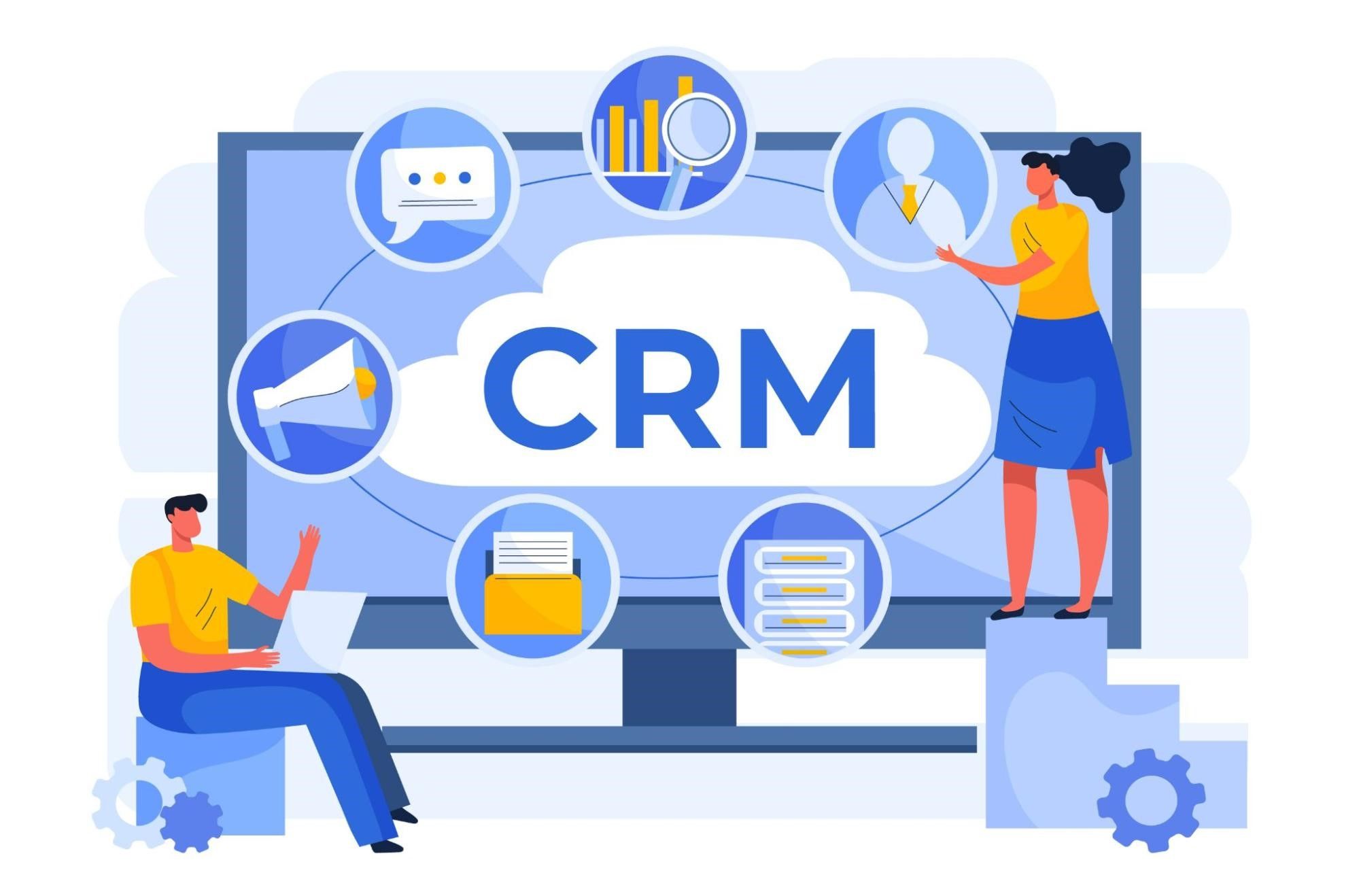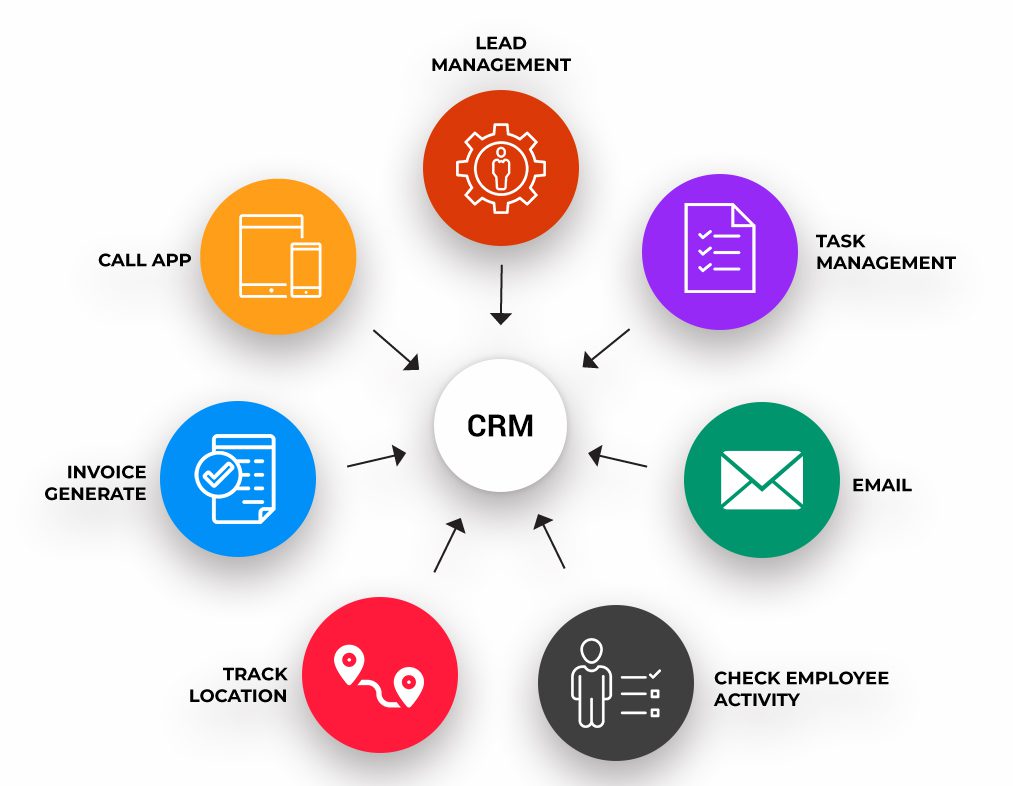The best CRM for medium businesses empowers businesses to streamline their operations, enhance customer relationships, and drive growth. With a plethora of options available, choosing the right CRM can be a daunting task. This guide will provide a comprehensive overview of the key considerations, features, and benefits to help medium businesses make an informed decision and select the optimal CRM solution.
This guide will explore the essential features of a CRM for medium businesses, including customer relationship management (CRM) capabilities, sales force automation (SFA) capabilities, marketing automation capabilities, and customer service and support capabilities. It will also discuss pricing models, scalability options, integrations, user interface, customer support, and case studies to provide a holistic understanding of the CRM landscape for medium businesses.
Key Features to Consider
Medium-sized businesses require specific features in a CRM system to optimize their customer interactions and drive growth. These key features include:
Customer Relationship Management (CRM) Capabilities
CRM capabilities enable businesses to manage customer data, track interactions, and build relationships. These features include contact management, lead tracking, opportunity management, and customer segmentation.
Sales Force Automation (SFA) Capabilities, Best crm for medium business
SFA capabilities automate sales processes, such as lead generation, lead qualification, and sales forecasting. These features enhance sales productivity and efficiency.
Marketing Automation Capabilities
Marketing automation capabilities enable businesses to automate marketing campaigns, such as email marketing, social media marketing, and content marketing. These features help nurture leads and generate qualified leads for the sales team.
Customer Service and Support Capabilities
Customer service and support capabilities provide businesses with the tools to manage customer inquiries, resolve issues, and provide timely support. These features include ticketing systems, knowledge bases, and live chat.
Pricing and Scalability
Pricing models and scalability options play a crucial role in selecting the best CRM for medium businesses. Understanding these aspects helps businesses align their CRM investment with their growth trajectory and financial constraints.
CRM pricing models vary widely, impacting medium businesses differently. Some providers offer subscription-based pricing, where businesses pay a monthly or annual fee based on the number of users or features utilized. Others adopt a usage-based model, charging businesses based on the volume of transactions or data processed.
Subscription-based Pricing
- Predictable monthly or annual fees
- Suitable for businesses with stable user counts and feature requirements
- May limit access to advanced features for lower-tier subscriptions
Usage-based Pricing
- Pay-as-you-go model, based on usage
- Cost-effective for businesses with fluctuating usage patterns
- Can lead to unpredictable expenses during peak periods
Scalability is another critical consideration for medium businesses. As they grow, their CRM needs evolve. A scalable CRM should accommodate increased data volumes, user counts, and integrations with other systems.
Cloud-based CRM
- Hosted on remote servers, providing flexibility and scalability
- Eliminates the need for on-premise infrastructure and maintenance
- May incur additional costs for storage and bandwidth
On-premise CRM
- Installed and managed on the business’s own servers
- Provides greater control and customization
- Requires significant upfront investment and ongoing maintenance
Choosing the right pricing model and scalability option is essential for medium businesses. By considering these factors, businesses can select a CRM that aligns with their current and future needs, optimizing their investment and driving business growth.
Integrations and Ecosystem
For medium-sized businesses, integrating their CRM with other business systems is crucial. Seamless integration with ERP (Enterprise Resource Planning) systems allows for real-time data exchange, ensuring accurate and up-to-date information across departments. Additionally, integration with email marketing platforms enables automated and targeted campaigns, enhancing customer engagement and nurturing.
A robust ecosystem of third-party applications and services complements the core CRM functionality. These integrations provide access to specialized tools for tasks such as project management, accounting, and customer support. By leveraging the ecosystem, medium businesses can extend the capabilities of their CRM and tailor it to their specific needs, fostering efficiency and collaboration.
Key Integrations
- ERP systems: SAP, Oracle NetSuite, Microsoft Dynamics
- Email marketing platforms: MailChimp, Constant Contact, HubSpot
- Project management tools: Asana, Trello, Basecamp
- Accounting software: QuickBooks, Xero, Sage
- Customer support platforms: Zendesk, Salesforce Service Cloud, Intercom
User Interface and Usability: Best Crm For Medium Business

A user-friendly interface is paramount for medium businesses to ensure efficient adoption and utilization of their CRM system. An intuitive design and seamless navigation empower users to quickly grasp the system’s functionalities, reducing training time and maximizing productivity.
Ease of Use
A well-designed interface simplifies user interactions, making it easy to navigate through various modules, access relevant data, and execute tasks with minimal effort. This enhances user satisfaction and encourages consistent engagement with the CRM system.
Intuitive Navigation
Logical menu structures and clear visual cues guide users through the system, enabling them to locate information and perform actions intuitively. A consistent user experience across different modules and platforms ensures seamless transitions and minimizes confusion.
Customization Options
The ability to customize the interface to suit specific business needs is crucial. Medium businesses can tailor the system to match their workflows, data preferences, and user roles, optimizing efficiency and personalizing the user experience.
Customer Support and Resources
For medium-sized businesses, prompt and efficient customer support is essential to ensure seamless operations and customer satisfaction. Reliable support channels provide timely assistance, minimizing disruptions and maximizing productivity.
Moreover, comprehensive resources such as user documentation, training materials, and online communities empower businesses with the knowledge and tools to effectively utilize the CRM system. These resources enable self-sufficiency and reduce reliance on external support, further enhancing operational efficiency.
Availability of Support Channels
- 24/7 Phone and Email Support:Round-the-clock availability ensures immediate assistance for urgent issues, minimizing downtime and maintaining business continuity.
- Live Chat Support:Real-time chat support provides instant responses to queries, reducing waiting times and facilitating efficient troubleshooting.
- Online Ticketing System:A ticketing system allows businesses to submit and track support requests, ensuring timely resolution and accountability.
Quality of Support
- Knowledgeable and Responsive Support Team:Well-trained support representatives with a deep understanding of the CRM system provide accurate and effective assistance.
- Personalized Support:Support tailored to specific business needs ensures tailored solutions and enhanced user satisfaction.
- First-Contact Resolution Rate:A high first-contact resolution rate indicates efficient support, reducing the need for multiple interactions and saving time.
Documentation and Training
- Comprehensive User Documentation:Well-written documentation provides clear instructions and best practices for system usage, reducing the need for external support.
- Interactive Training Modules:Engaging training materials facilitate quick onboarding and skill development, empowering users to maximize system functionality.
- Online Knowledge Base:A searchable repository of articles and resources provides self-service support, enabling users to find answers independently.
Online Communities and Forums
- Peer-to-Peer Support:Online communities and forums allow users to connect with each other, share experiences, and provide mutual support.
- Vendor-Hosted Webinars and Events:Regular webinars and events hosted by the CRM vendor provide opportunities for learning, networking, and staying updated with the latest system enhancements.
- Case Studies and Success Stories:Real-world examples of successful CRM implementations inspire and provide valuable insights into best practices.
Case Studies and Success Stories
Numerous medium-sized businesses have witnessed remarkable transformations after implementing a robust CRM system. These case studies serve as compelling evidence of the tangible benefits and positive outcomes that businesses can achieve.
One notable success story is that of a manufacturing company with approximately 200 employees. Prior to implementing a CRM, the company struggled with managing customer interactions, leading to missed opportunities and frustrated customers. However, after adopting a comprehensive CRM solution, they experienced a significant improvement in customer satisfaction, streamlined their sales processes, and increased their overall revenue by 15% within the first year.
Improved Customer Relationships
- Enhanced customer engagement through personalized communication
- Increased customer satisfaction and loyalty
- Improved customer retention rates
Streamlined Sales Processes
- Automated lead generation and qualification
- Improved sales forecasting and pipeline management
- Reduced sales cycles and increased conversion rates
Increased Revenue
- Improved customer targeting and segmentation
- Upselling and cross-selling opportunities
- Enhanced customer lifetime value
Comparison Table

Comparing different CRM solutions can be challenging due to the variety of features, pricing models, and integrations available. To simplify the decision-making process, we have created a comparison table that highlights the key aspects of leading CRM solutions.
The table includes information on vendor, key features, pricing, and key differentiators to help you identify the solution that best meets your business needs.
Vendor
- Salesforce
- Microsoft Dynamics 365
- HubSpot
- Zoho CRM
- Freshworks CRM
Key Features
- Contact management
- Lead management
- Sales automation
- Marketing automation
- Customer service
Pricing
- Salesforce: Starting at $25 per user per month
- Microsoft Dynamics 365: Starting at $65 per user per month
- HubSpot: Starting at $45 per user per month
- Zoho CRM: Starting at $12 per user per month
- Freshworks CRM: Starting at $15 per user per month
Key Differentiators
- Salesforce: Market leader with a wide range of features and integrations
- Microsoft Dynamics 365: Strong integration with Microsoft products and services
- HubSpot: Focus on inbound marketing and lead generation
- Zoho CRM: Affordable option with a comprehensive set of features
- Freshworks CRM: User-friendly interface and strong customer support
Conclusion
Choosing the right CRM for your medium-sized business is crucial for optimizing sales, marketing, and customer service operations. It’s essential to evaluate solutions based on your specific business needs and goals, considering factors such as scalability, integrations, user experience, and support.
By carefully considering the key findings Artikeld in this guide, you can make an informed decision that aligns with your business objectives and drives success.
Recommendation for Medium Businesses
Medium businesses should prioritize CRM solutions that offer the following capabilities:
- Robust features to manage sales, marketing, and customer service effectively.
- Scalability to accommodate growth and evolving business needs.
- Seamless integrations with other business applications.
- Intuitive user interface and ease of use for all team members.
- Excellent customer support and resources to ensure smooth implementation and ongoing success.
By selecting a CRM that meets these criteria, medium businesses can streamline operations, improve customer relationships, and drive business growth.
Final Summary
In conclusion, selecting the best CRM for medium businesses requires careful consideration of specific business needs and goals. By evaluating the key features, pricing, scalability, integrations, user interface, customer support, and success stories Artikeld in this guide, medium businesses can make an informed decision that will empower them to achieve their business objectives and drive success.
User Queries
What are the key features to consider when choosing a CRM for a medium business?
Key features to consider include customer relationship management (CRM) capabilities, sales force automation (SFA) capabilities, marketing automation capabilities, and customer service and support capabilities.
How does pricing impact the selection of a CRM for a medium business?
Pricing models vary, and medium businesses should consider the cost, scalability, and features offered by different CRM solutions to determine the best fit for their budget and growth plans.
What are the benefits of integrations with other business systems for a CRM?
Integrations with other business systems, such as ERP and email marketing, streamline operations, improve data accuracy, and enhance overall efficiency.
